From Our Minister Archive
From Our Minister: One More Step
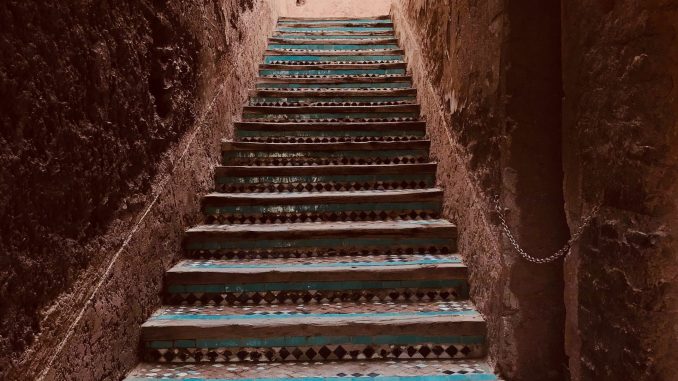

Spiritual Liberation
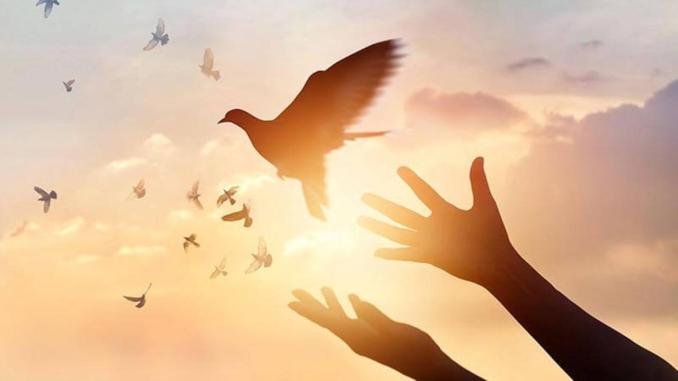
From our Minister: Beloved Wisdom
MARCH'S SPIRITUAL THEME FOR COMMUNITY EXPLORATION

-Proverbs 1:20
From our Minister: Spiritual Resilience
FEBRUARY'S SPIRITUAL THEME FOR COMMUNITY EXPLORATION
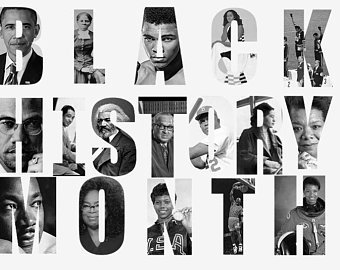
 This month our spiritual theme for community exploration is resilience. Broadly defined, resilience is our capacity to withstand challenges and recover from difficulties. Spiritual resilience might be defined as the capacity to remain centered; rooted in core values and principles, through the vicissitudes of life. Resilience is something that can be cultivated through practices such as setting good boundaries, self-care, community care, spiritual practice, counseling, optimism, gratitude, flexibility, and social action. This empowers us to make a difference in our lives and in the lives of others. Developmental Ministry is a period when communities learn what it means to be spiritually resilient by reinforcing healthy practices in community life and learning from mistakes. It takes time to create a new way of being that enhances our collective self-awareness and our capacities to treat each other with even greater sensitivity and compassion. This is challenging work because it is in direct opposition to so much of the political landscape and dominant culture in which we live.
This month our spiritual theme for community exploration is resilience. Broadly defined, resilience is our capacity to withstand challenges and recover from difficulties. Spiritual resilience might be defined as the capacity to remain centered; rooted in core values and principles, through the vicissitudes of life. Resilience is something that can be cultivated through practices such as setting good boundaries, self-care, community care, spiritual practice, counseling, optimism, gratitude, flexibility, and social action. This empowers us to make a difference in our lives and in the lives of others. Developmental Ministry is a period when communities learn what it means to be spiritually resilient by reinforcing healthy practices in community life and learning from mistakes. It takes time to create a new way of being that enhances our collective self-awareness and our capacities to treat each other with even greater sensitivity and compassion. This is challenging work because it is in direct opposition to so much of the political landscape and dominant culture in which we live.Developmental Minister
From our Minister: Blessings for the New Year!
RESOLUTIONS FOR OUR BELOVED COMMUNITY

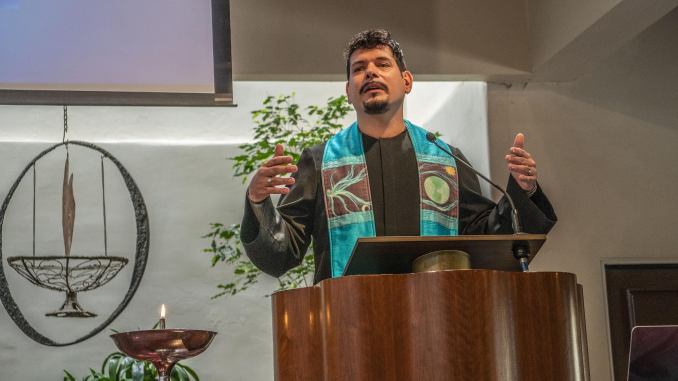 Rev. Jeremiah KalendaeWe once again find ourselves upon the threshold of another orbit around our home star. The holiday season brought with it many gifts and challenges and hopefully rekindled our spirits in the midst of the wintertime. As we lit the candles of the menorah and told ancient stories of resistance and liberation, so many of our Jewish siblings were being victimized and targeted. Let us hold the Jewish community in our hearts as begin this new year as stewards of peace and defenders of justice. Many of us are ready to turn the page on this chapter of human history and are dreaming of new ways to create community together both in our congregation and in the wider world. Many of the old structures of the social order which harmed and oppressed people are passing away and we are working to create ways to revitalize our communities and our threatened planet home. It is important that we shelter those most vulnerable in our liberal faith communities, speak out for humanity and our environment, and provide spiritual leadership in a world that is still navigating its way through so many societal challenges and advances.
Rev. Jeremiah KalendaeWe once again find ourselves upon the threshold of another orbit around our home star. The holiday season brought with it many gifts and challenges and hopefully rekindled our spirits in the midst of the wintertime. As we lit the candles of the menorah and told ancient stories of resistance and liberation, so many of our Jewish siblings were being victimized and targeted. Let us hold the Jewish community in our hearts as begin this new year as stewards of peace and defenders of justice. Many of us are ready to turn the page on this chapter of human history and are dreaming of new ways to create community together both in our congregation and in the wider world. Many of the old structures of the social order which harmed and oppressed people are passing away and we are working to create ways to revitalize our communities and our threatened planet home. It is important that we shelter those most vulnerable in our liberal faith communities, speak out for humanity and our environment, and provide spiritual leadership in a world that is still navigating its way through so many societal challenges and advances.Jeremiah
Happy Pride!

“There is no such thing as a single-issue struggle because we do not live single-issue lives.”—Audre Lorde
From Our Minister: Warm Holiday Greetings!
PLANS FOR THE FUTURE

The miraculous birth of a child, a light that burns unending, the longest night of the year, and seven candles lit in the darkness — these are the cherished stories of the Yuletide season. A time for gathering of family and community, feasts and gifts, caroling and rejoicing. These holy days can stir warm memories of days past and also remind of us of loss or pain. For some, the holidays are the time when loneliness, grief, and depression is particularly intense. Our Pastoral Associates and Care Ring are available if you need company, to talk with someone, or have any practical needs with which our church community might be able to help you. To ring in the winter holidays and New Year, our beloved community will be hosting a series of worship services to commemorate the many traditions of this season, spread cheer and goodwill, and cultivate peace throughout our homes and in the larger world. We hope you will be able to be with us for these many special celebrations.
We have hit the ground running in my first three months serving with you as your developmental minister. We are embarking upon many new initiatives, including a community-wide reflection on the 8 Elements of Effective Congregational Ministries to explore how we are already engaging in shared ministry and to identify ways that we can expand upon our shared responsibility for the wellbeing and vitality of the congregation. It is my hope that each group in the church will dedicate some time in the next three months to consider the ways in which they are engaging in ministry and spiritual leadership and share some of their discoveries with me and the board. We are hoping to gain a greater sense of the breadth of depth of the work of the congregation and identifies ways that we can build integration across the life of the congregation. We believe this process with strengthen the bonds within our community and help to lay the foundation for important mission discernment work down the road.
We are also endeavoring to create our first congregational promotional video and we plan to begin filming soon. We are hoping to capture some of the stories of the good work of the community and highlight our goals for our stewardship campaign. This is probably a good time to thank you for your generous contributions and pledges, and to remind you the end of the tax year is quickly approaching. We are calling our Stewardship Committee the Stewardship Design Team this year as we bringing artistic, social, and administrative dimensions to the work with our congregational video project. If you have skills in videography, directing, producing, or editing, please don’t hesitate to reach out to me if you’d like to be apart of this exciting new project. We hope this too will help us with discernment work in the future as we learn to tell and hear the stories of our beloved community.
Let us all take a collective breath as the winter holidays approach. Let us dwell in the serenity of the season and cultivate more of it for ourselves and our neighbors. Remember to reach out to those who many be isolated or alone. If you are in need of pastoral support or interested in applying to be a Pastoral Associate, please do reach out to pastoralcare@uusm.org.
Wishing you the happiest of holidays!
With love and gratitude,
Rev. Jeremiah
8 Elements of Effective Congregational Ministries
CREATING BELOVED COMMUNITY TOGETHER

Rev. Jeremiah Kalendae
Thank You for the Warm Welcome!

Jeremiah
Greetings from our Minister
BY REVEREND JEREMIAH KALENDAE
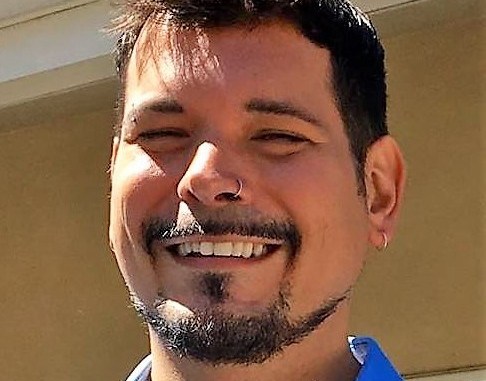


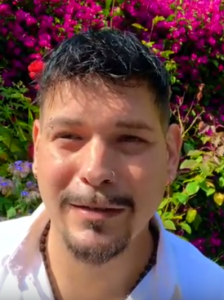 Greetings from the Rev. Jeremiah Kalendae - Welcome Him on August 22
Greetings from the Rev. Jeremiah Kalendae - Welcome Him on August 22